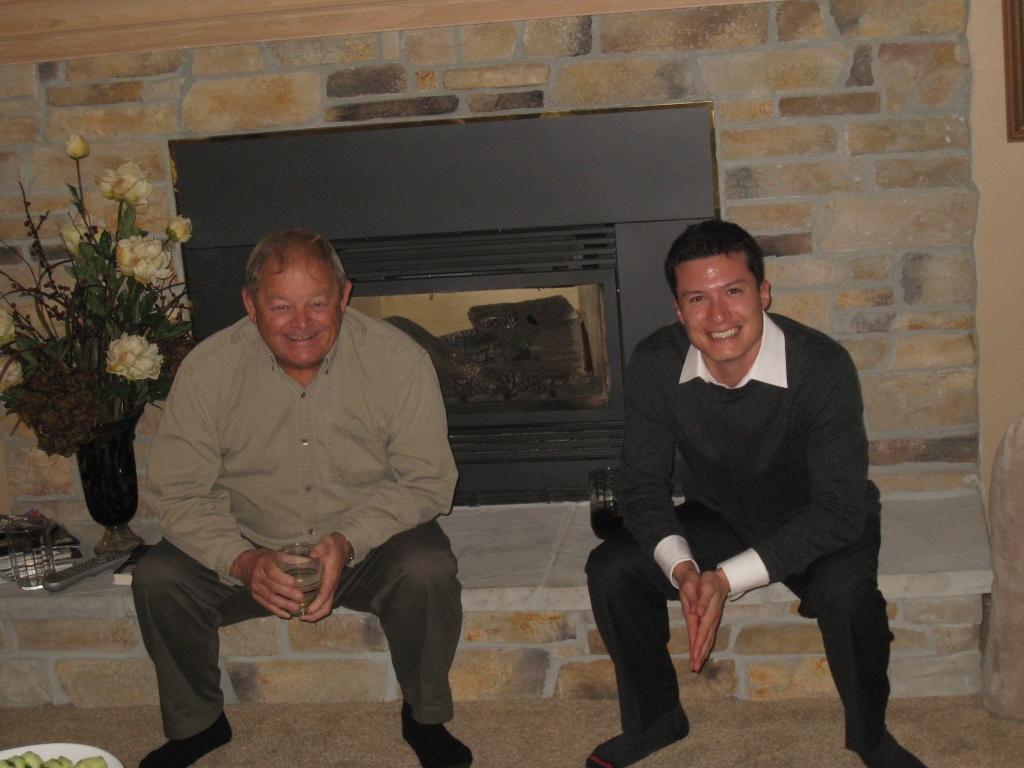
Jill: The past several years have been tough, really tough, with me losing both my parents. I’ve written a lot about my grief and how it felt from my perspective. Can you share what it’s been like as a spouse of someone who’s suffering from grief? I don’t think people think about the spouse that much in these circumstances. I mean, it was hard for our relationship, right? It was a challenge for a while.
Ryan: I think there was a paradigm shift that occurs, or at least occurred for me, in which I realized this is not something which can be solved or fixed.
Jill: You mean, you can’t make me feel better?
Ryan: Yes. If my inclination is to try and fix the situation because I care so much about you and I see that you’re hurting, then my first reaction would have been ‘What can I do to not make you not hurt or to take this away either through distraction or doing SOMETHING.’
There’s a need to solve or fix the issue, but there is a realization that not only is that probably impossible to do, but really counterproductive. Your need is instead to be heard, be listened to, and to have someone to empathize with you.
If you talk to me it’s not because you are asking me to take care of the situation. It’s because you’re feeling incredibly deep and sometimes paralyzing emotions. It’s my role to listen and to hear what you are saying. It’s not my place to take that on and say ‘Okay. Now Jill is expecting me to remedy this somehow.’
Jill: I think the hardest thing for me was wanting to feel understood, but it’s impossible for someone from the outside to truly understand. Therefore, the feeling is even more alienating, even as a couple. You are closer to me than anybody and I share everything with you. Grief is alienating, because there’s no way possible for you to understand. Yet, that was what I desired the most.
Ryan: Because I haven’t lost a parent, I don’t have a good frame of reference on grief. It was difficult to not only realize I can’t do anything to help, but to know I’m not sure I can entirely understand it. It was difficult not only to know that you are hurting, but also to feel very powerless as to what my role should be.
Jill: I think in a really strong relationship each person takes care of one another to a certain degree. Sometimes that is 60/40, sometimes it’s 50/50 and sometimes it’s 70/30. But here, it is completely one sided. I needed to be taken care of, and I had no bandwidth whatsoever to take care of you at this point in time. This went on for a long period of time. Is that how it felt?
Ryan: Yes, but along with that is the realization this is unbalanced out of necessity. Grief of that magnitude isn’t something you can easily compartmentalize or set aside. My needs or my own feelings could not take precedent, nor did I expect it to.
Jill: Rationally you can tell yourself that, but emotionally is that still the case?
Ryan: That’s a good distinction. You can tell yourself something rationally and at the same time emotionally you feel “Wait…what about me?” So yes, there is that constant kind of battle to meet emotional needs while still thinking rationally.
Jill: I’m glad we can talk about it now, because if you told at that time “I don’t think my needs are being met” it would have been really hard for me to hear. I was just trying to swim and keep my head above water.
I can see how as a spouse of someone who’s grieving they might feel like they are getting lost.
Ryan: Yeah, absolutely. Just as it is emotionally isolating for someone like you in the depth of their grief, it can feel like that from the other side as well. The bridge, the connection, was really energy driven in one direction. All the excess capacity is being taken up by this moment to moment, dad to day survival of sorts. There’s still a constant battle what you know rationally, what you feel emotionally and trying to reconcile those two things.
Jill: I went to therapy to help me work through my grief, and then I encouraged you to go to therapy to see if there were ways we could work through the grief together. Was that helpful?
Ryan: Yes, it was. A lot of it came down to me finding an outlet to express my frustrations. It wasn’t with you or with your grief or anything other than feeling I was unable to connect, unable to help, unable to empathize, unable to know how to best help. Those are all things that would be really really difficult for me to discuss with you.
Jill: Do you have any advice for other spouses who are trying to support their loved ones through the grieving process?
Ryan: I found therapy to be very helpful. I think if I can stereotype for a minute, I think men tend to be fixers. We see something that is not right or broken or our wife is sad and we think ‘Alright. I’m going to step in here like I would fix a leaky faucet.’ With grief it is not something that can be fixed. As hard as we try and as much as we want to, there is not an easy way to make everything right or take away this pain. In many ways it kind of goes against our instinct, or my instinct at least, to want to take care of everything.
I guess my advice would be to assess the situation and determine if your spouse is just asking for a willing ear, some comfort and some attempt to empathize rather than a plea for you to make everything better.


 RSS Feed
RSS Feed